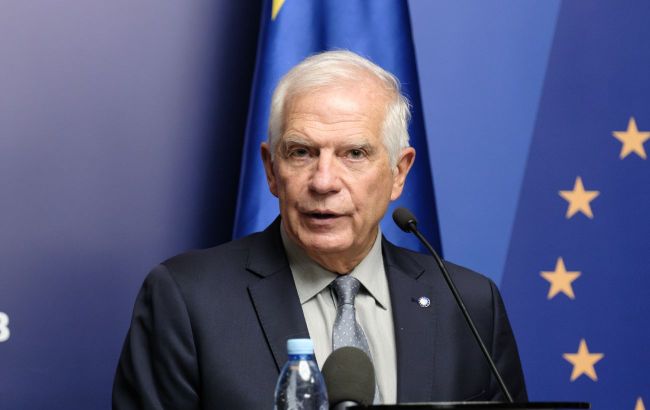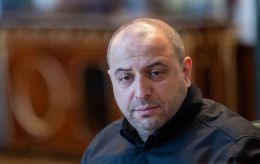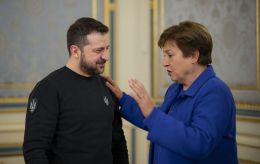EU urges Venezuelan government to stop persecuting opposition, release all political prisoners
 Josep Borrell, EU High Representative for Foreign Affairs (photo: Vitalii Nosach, RBC-Ukraine)
Josep Borrell, EU High Representative for Foreign Affairs (photo: Vitalii Nosach, RBC-Ukraine)
The European Union has called on the Venezuelan government to halt its repression of the opposition and to release all political prisoners. This demand follows the forced departure of opposition leader Edmundo González from the country, according to the EU High Representative for Foreign Affairs Josep Borrell.
The EU noted that González, a presidential candidate in Venezuela, faced political persecution during the elections and encountered direct threats to his safety and freedom.
"The EU insists that the Venezuelan authorities end repression, arbitrary arrests and harassment against members of the opposition and civil society, as well as release all political prisoners," the statement read.
Furthermore, Josep Borrell stated in his statement that it was a sad day for democracy in Venezuela, recalling that on September 8, González was compelled to leave his home country.
"In a democracy, no political leader should be forced to seek asylum in another country," EU High Representative Josep Borrell explained.
What preceded
On July 28, Venezuela held its presidential elections. The country's electoral council declared incumbent President Nicolás Maduro, who has been in power since 2013, the winner. However, according to opposition claims, with 90% of votes counted, opposition candidate Edmundo González had won.
In the days following the election, thousands of people took to the streets to protest the results. The demonstrations were met with severe repression, resulting in at least 27 deaths and 2,400 arrests.
Since the election, González has been missing from public view. On August 27, an arrest warrant was issued for him. The opposition leader is accused of inciting rebellion and conspiracy following his claim of victory.
Yesterday, Minister of Foreign Affairs of the Netherlands Caspar Veldkamp revealed that González had been secretly sheltered in the Dutch embassy in Caracas for over a month. Recently, he had been at the Spanish embassy, and it was announced that González had flown directly to Spain on a military aircraft, where he is expected to receive political asylum.

